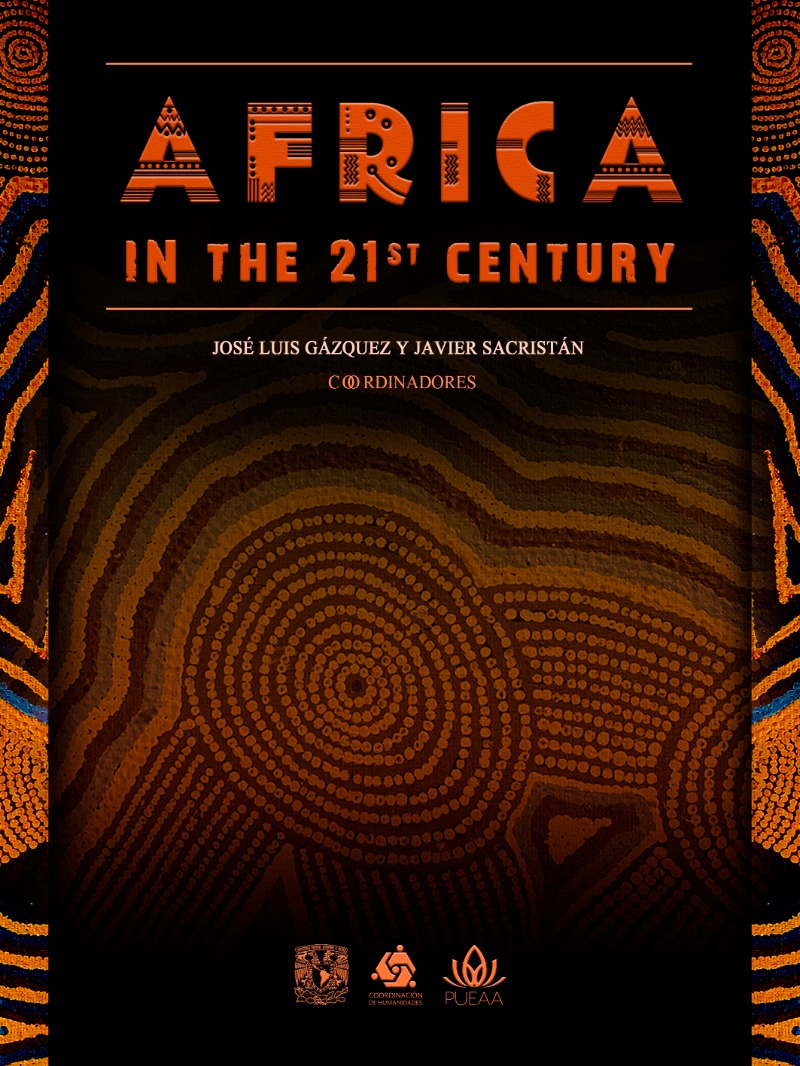
Africa in the 21st century
Collin Marshall, Wesley
Muñoz Bravo, Tomás Milton
Gázquez Iglesias, José Luis
Berumen Colín, Noemí Paulina
Girón González, Alicia Adelaida
Ribeiro de Freitas Meireles, Monika
Rivas, Karen Arlin
Sacristán De Alva, Javier
Franco Silva, Adriana
Reyes Lugardo, Marco Antonio
Colaboradores:
Gázquez Iglesias, José Luis (Coordinador editorial)
Sacristán De Alva, Javier (Coordinador editorial)
Editorial:Universidad Nacional Autónoma de México
Materia:Geografía y viajes en África
Público objetivo:Enseñanza universitaria o superior
Publicado:2023-02-14
Número de edición:1
Tamaño:2Mb
Soporte:Digital
Formato:PDF
Idioma:Inglés
Libros relacionados
Reseña
This book is the product of an academic effort made by different institutions in the world. It is also one of the most significant steps that UNAM has taken to open spaces for African studies in the institution. It is imperative to study global history from an African perspective, not only because its own history was erased as one of the consequences of European imperialism and colonization during the nineteenth and first half of the twentieth century. As it has been proven, German philosopher G.W.F. Hegel, among other Western philosophers,
played an important role in legitimizing the colonial and imperial undertakings of European powers. In his book, Philosophy of History, he denied African societies had a past and were trapped in a stage of eternal barbarism. Even though there has been extensive work in
Western thought to deconstruct this vision of the continent, its effects are still present in the academy as well as in African states and their international relations, not to mention media and popular representations in Western countries. In this sense, it remains essential to continue studying Africa, its history and its societies within a critical perspective.
This book tries to prove the need of deepening our understanding of Africa’s political, social, and cultural problems in order to advance scientific knowledge, not only at UNAM but also at other academic institutions across Mexico, Latin America and the world. Nowadays, our
university has specialists who can more than contribute to the global discussion about Africa.
This is why one of the main goals of the University Program of Studies on Asia and Africa (PUEAA) is to gather these specialists in order to build cooperation and collaboration strategies that can add to the development of African studies in Mexico and abroad.
Mexico, like other Latin American countries, has a lot of historical similarities with African nations. In the twenty-first century, we are bound to start deconstructing our own fundamental knowledge about the continent in order to introduce our students into critical perspectives of the African continent that can allow them to think and study their own country or region through different lenses. In this respect, it is striking to observe and realize cultural connections and mutual influences through musical expressions and exchanges in both sides of the Atlantic




